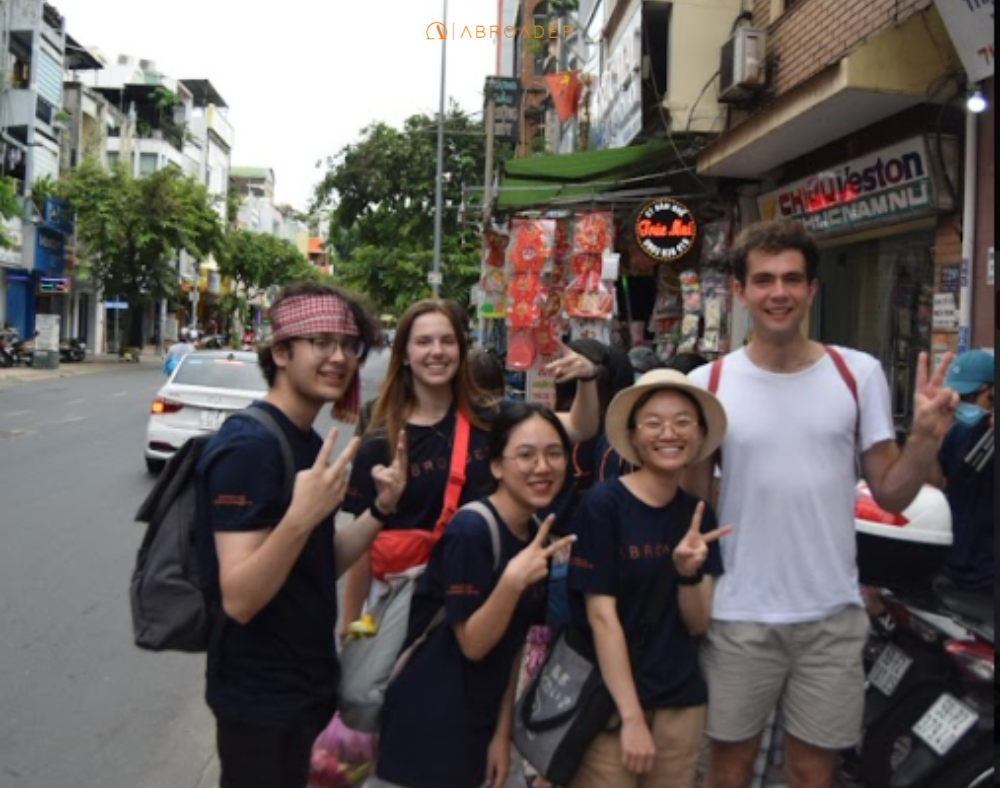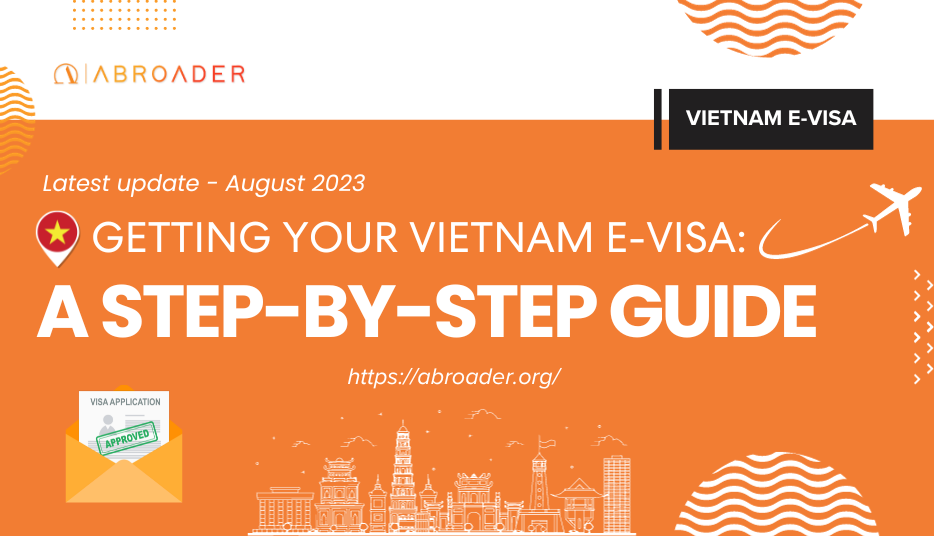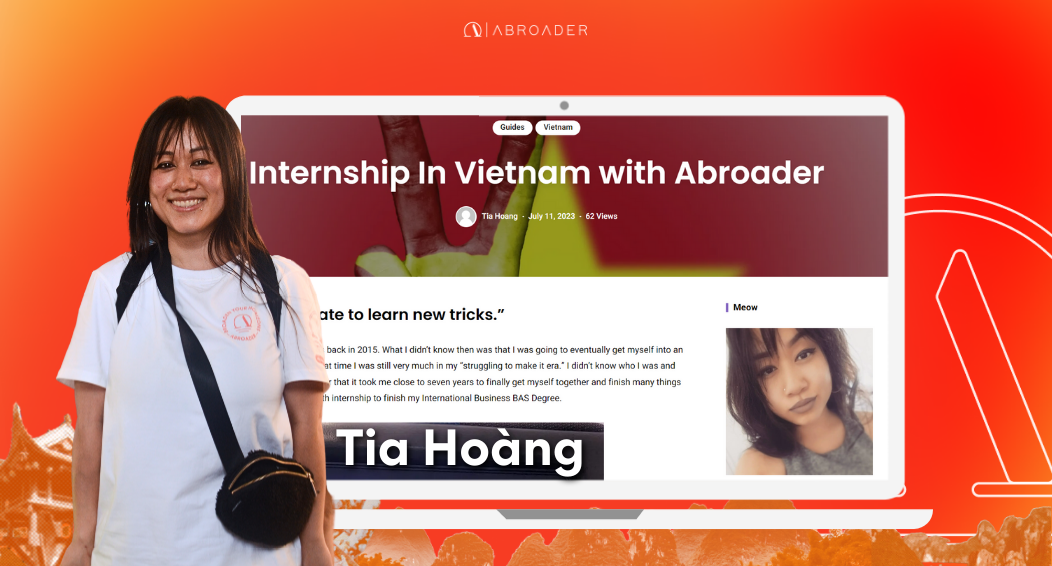Ways to Tackle Culture Shock while abroad
ABROADER December 23, 2022 7 minute read

Studying abroad can feel like the world has flipped upside down. From not knowing what to eat for breakfast, to the language barrier, it’s a lot to take in. But don’t worry! We’ve got your back. Here are some tips on how to survive culture shock while studying/interning abroad.
Culture Shock is the unavoidable, indisputable, and irreplaceable part of a big abroad trip. Culture shock can be, to some extent, unbearable if you don’t have previous experience. However, it can be absolutely rewarding once you can get over the challenges and start taking control of your life abroad. So here is what you need to know about culture shock and how to get over it.
What is culture shock?
Culture shock occurs because of total immersion in a new culture. Newcomers may be anxious. Because they do not speak the language, know the customs, or understand people’s behaviors in daily life. You may find out after spending some time living in Vietnam that ‘yes’ may not always mean ‘yes’. Or friendliness does not necessarily mean friendship or statements that appear to be serious really mean jokes. Foreigners may be unsure as to when to shake hands or embrace, when to initiate conversation or how to approach a stranger. The notion of culture shock helps explain feelings of bewilderment and disorientation.

Sometimes you may want to reject everything about the new environment and may exaggerate the positive aspects of your culture. The severity of culture shock depends on visitors’ personalities, language ability, emotional support, and duration of stay.
Periods of a culture shock
Culture shock is also influenced by the extent of the differences, either actual or perceived, between the two cultures. There are periods of adjustment. Although the stages in the cycle do not always occur in the same order and some stages may be skipped, the following pattern is common:
- Honeymoon Period – Initially many people are fascinated and excited by everything new. The visitor is elated to be in a new culture.
- Culture Shock– The individual runs into some problems: Housing, transportation, shopping, and language. Mental fatigue results from continuously straining to comprehend a foreign language. Complaints are the first symptoms.
- Initial Adjustment– Everyday activities such as housing and shopping are no longer an issue. Although the visitor may not be fluent in the language spoken, basic ideas and feelings in the second language or new dialect can at least be expressed.
- Mental Isolation– Individuals have been away from their family and good friends for a long period and may feel lonely. Many still feel they cannot express themselves as well as they can in their native culture. Frustration and sometimes a loss of self-confidence result. Some individuals remain at this stage.
- Acceptance and Integration– A routine (i.e. work, business, or school) has been established. The visitor has accepted the habits, customs, foods, and characteristics of the people in the new culture. The visitor feels comfortable with friends, classmates, coworkers, and the culture of the country.
However, culture shock can also occur once the student returns to their home country.
A similar process occurs when a person returns to their native country. Although the stages are usually shorter and less intense. It can be hard to express to family/friends experience and pictures/ words can only do your trip so much justice.
How to combat stress caused by culture shock?
Before you go:
Learn about the country
Learn the expected and prepare for the unexpected. It is very easy nowadays to gain access to information online about a country’s culture, customs, and traditions as well as dos and don’ts for foreigners (for example, don’t wear shorts, miniskirts, or revealing clothes to temples or pagodas in Vietnam). You can find this type of information in travel forums, magazines, guidebooks, or even novels. Or easier, you can explore right on our website. Do your homework and study as much as you can about the place where you are going to live for the next few months (or even years). Then you will find it extremely helpful in your day-to-day life.

Consult with your onsite coordinator or local buddies
If you are still not sure whether the online travel guides are over-exaggerating or playing down some details of the culture, ask the expert. Your onsite program coordinator is the first one you should contact as they are, first of all, locals and they have extensive experience in advising or even solving problems students have from culture shock. Their experience might be very different from your own, but they can definitely point out what can cause problems as a foreigner living in the country since they too, were foreigners.
Certainly, you can also look to your program coordinator and your local buddies to help deal with the stress and anxiety caused by culture shock while you are in the country. Do remember that, there is nothing too strange-sounding or embarrassing about culture shock or how you feel, so let the person in charge know right away when you are having trouble and they can give you sufficient advice and even assistance.

When you are in the country:
Be Patient
It takes time to acclimate to new cultures and find a new routine so don’t jump to conclusion that your whole program is already a disaster.
Carpe Diem
Seize every opportunity to learn the language or local lingo, participate in cultural and social activities, consider joining local clubs, and groups or explore your city and the surrounding areas. Go shopping in a local market, or if you feel safer, do it in a big supermarket or convenience store. ‘Do anything’ is the right answer to culture shock, not ‘do nothing’.

Indulge in a new hobby
Take your mind away from your concerns or annoyance and find worthy distractions, you can learn the language of your host country, you can sign up for a martial arts class or a traditional arts and craft workshop, go for a run around your neighborhood on the weekend or explore the suburbs with your new friends. Try anything that brings you out of your comfort zone and into the exciting new world that is your host country. Eventually, you can lift away your irritations and joyously enjoy your life abroad.

Write down what you love when you first arrive and look back later
The honeymoon period, right after you come to the country is a good time to do this, write down all the little observations you have of the new things buzzing on around you, write a blog that captures your journey and show it off to folks back home. Then, when you’re feeling frustrated or annoyed (who knows, by the same thing you used to love), use this list to remind yourself of all the good sides of your host country, and what you have learned and grown instead of looking at the negativity.
Leaving all the worries behind, and come on, Vietnam is waiting for you, with hospitability and joy.














Comments